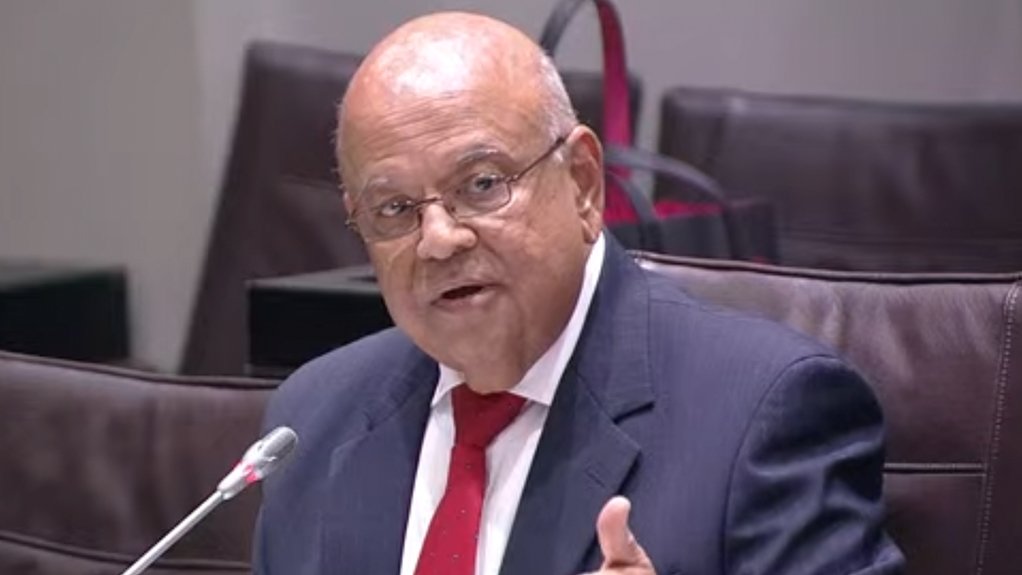While executives and board members at troubled State-owned enterprises Transnet and Eskom have resigned in recent weeks, Public Enterprises Minister Pravin Gordhan has rejected accusations that it is due to his "political meddling."
The minister was responding to questions from members of Parliament on Wednesday. Among the issues addressed were the "recent flurry of resignations", in reference to numerous recent high-profile exits.
Transnet CEO Portia Derby's resignation, announced at the end of September, was shortly followed by that of Transnet Freight Rail CEO Siza Mzimela. According to Gordhan, this was related to "the state of affairs within the company and performance". Transnet recorded a R5.7-billion loss for the financial year ending March 2023, and rail volumes have declined from 226-million tonnes in 2017/18 to 149-million tonnes by 2022/23, Gordhan said.
Transnet CFO Nonkululeko Dlamini, meanwhile, took up a position at Telkom. According to Gordhan, this was a "pure job change".
News24 also reported on Monday that Ali Motala, Transnet's managing executive for the critical export coal line, would be leaving for "personal reasons".
In similar vein, Gordhan noted that one Transnet board member had resigned for "personal reasons". Popo Molefe resigned in October, a few months after Gordhan removed him as board chairperson in July.
On the Eskom front, former CEO André de Ruyter resigned in December 2022, which Gordhan attributed to "non-performance" and his "attitude to serving in the institution". At the time, News24 reported that De Ruyter said it was "untenable" to continue in the position without support following repeated attacks by "senior members of government".
Chief operations officer Jan Oberholzer, who officially retired in April but entered into a two-year contract with Eskom, also made a surprise exit. Gordhan said this was due to Oberholzer taking on a new position. Oberholzer has joined renewable energy company Mulilo Energy Holdings.
Eskom board chair Mpho Makwana is also departing, reportedly over a disagreement about the appointment of a new CEO.
Addressing issues of leadership gaps at these key entities, Gordhan said that interim executives had been appointed to ensure business continuity.
A new CEO of Eskom will be appointed before the end of the year, he told members of Parliament.
The Transnet board has also started a process to recruit a new CEO and their senior members, Gordhan said.
The minister stressed that the boards of both entities have been instructed to develop and pursue recovery plans so that their performance can be improved. "The level of performance we are seeing is not good for the country, not good for the entity and not good for the individuals themselves."
But there seemed to be a view among a number of members of Parliament – mainly from the DA and EFF – that Gordhan was the common denominator when it comes to the challenges at the entities.
'Not going anywhere'
DA member of Parliament Farhat Essack suggested that the resignations are a symptom of Gordhan's "political meddling".
"Perhaps, minister, it is time you step down and leave," said Essack.
Gordhan, however hit back, "I am not going anywhere until the end of this term."
Gordhan said that he was accepting his responsibility for the failures at the State-owned enterprises, which was why board changes were happening "where appropriate". The minister is responsible for appointing board members.
As for accusations of interfering in the management of companies, Gordhan said that he did not have time for "meddling".
"I do not have a spanner or anything else in my office to go around to fix a power station or anything like that," he snapped.
Gordhan also pinned the trouble at the entities to state capture.
He invited Essack to have a cup of tea with him so he could explain the kind of damage state capture did to the institutions.
The minister defended the current administration for having inherited a situation in 2018 where boards were proactively working to extract funds from entities. "Managers were appointed because they could enable theft and corruption to take place. Compared to where we are today, there is a huge difference," he said.
It would take time to turn these institutions around.
"These are broken institutions, but we'll fix it. I am confident that things will improve from this point onwards."
EMAIL THIS ARTICLE SAVE THIS ARTICLE
To subscribe email subscriptions@creamermedia.co.za or click here
To advertise email advertising@creamermedia.co.za or click here











